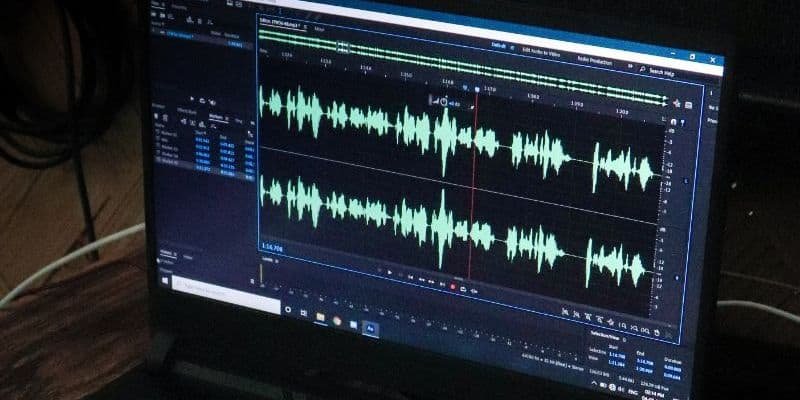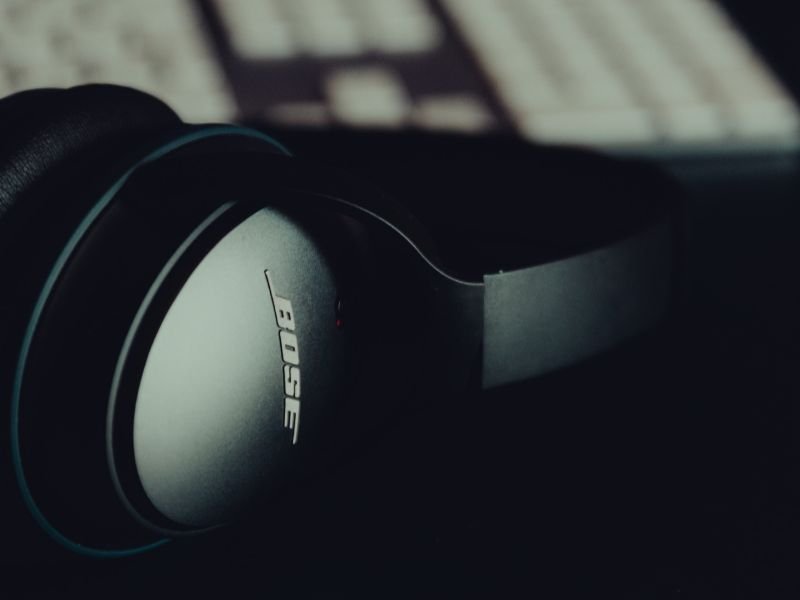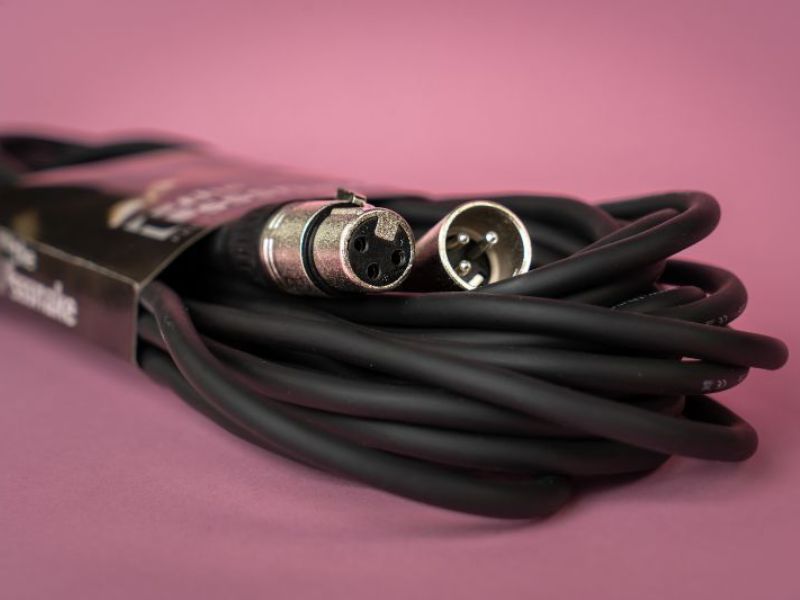Skip to the good bit
ToggleHeadphones make listening to music on the go possible. For some, commuting without headphones would be unbearable; the same applies to those who need music to focus on a task. But, whatever your reason for wearing headphones, nothing quite ruins your listening experience, like outside noise.
When wearing low-quality headphones, something as simple as a conversation or a passing train can completely overpower your music. The mini-concert experience soon fades, leaving you frustrated and on edge. When buying headphones, one of the many questions to ask yourself is, do you need noise-canceling capabilities?
What Are Noise-Cancelling Headphones?
As the name suggests, noise-cancelling headphones go the extra mile to reduce unwanted sounds. They allow you to achieve much-needed peace and quiet, no matter where you are. The main difference between noise-canceling and standard headphones is the techniques that block noise. Noise-canceling headphones use active noise control (ANC) to block out ambient sounds, whereas standard headphones use basic soundproofing or nothing. This means that if you wear standard headphones, you will likely hear other noises while listening to music.
How do Noise-Cancelling Headphones Work?
Noise-cancelling headphones use tiny microphones to pick up outside noise. The headphones then neutralize this noise by creating an opposite sound wave. The two sounds cancel each other out by creating an inverted sound wave. This process is called active noise cancellation (ANC).
Many of us can’t live without noise-cancelling headphones. Whether to get some much-needed peace and quiet or block out distracting noises, popping a pair of headphones on is often a saving grace. But how do noise-cancelling headphones work? We’re here to reveal everything, but pay close attention, as the answer is complex (sorry!).
Understanding Sound Waves
Now – an explanation for the science lovers…
Before we examine the technicalities of noise-cancelling headphones, it’s essential to understand what sound is. This will help us understand how it is blocked out. In comes physics.
Sound is a result of vibrations in the air. As these vibrations compress and decompress, they cause slight changes in air pressure. Our ears and brain then cleverly detect air pressure changes (also known as amplitude), converting them into sound. As expected, the louder the sound, the greater the amplitude.

Part 1: Active Noise Cancellation
The majority of high-quality noise-cancelling headphones use something called active noise cancellation (ANC). Brian Brorsbol, Director of Product Management at Sennheiser Communications, claims that ANC headphones can “turn down the volume of the world by about 30dB”. Pretty clever, right? If you’re still wondering how this is possible, read on to find out more.
ANC uses something called “anti-phase” to cancel outside noise. When two sound waves are “in-phase”, they have the same flow, resulting in a louder sound. But, when two sound waves are “out of phase”, one wavelength is slightly delayed. This delay causes the positive and negative pressures to act against each other, canceling out unwanted noise.
Part 2: Tiny Microphones
Headphones utilize the power of ANC with help from tiny microphones. The microphones (situated on the outside of your headphones) listen to ambient noise, signaling to the electronics in your headphones to cancel it out. Using the “anti-phase” method to eliminate any outside noise, your headphones create an opposite soundwave.
While the mechanics behind noise-cancelling headphones can seem pretty complex, the result is an immersive listening experience without distractions! It’s amazing to see what tiny microphones and the rules of physics can do.
The Pros and Cons Of Noise-Cancelling Headphones
Many people believe that noise-cancelling headphones eliminate all unwanted sounds. While this is true to a certain extent, ANC actually just makes outside noises quieter rather than eliminating them altogether.
That said, there are many advantages to wearing noise-cancelling headphones. To help you understand whether they’re right for you, let’s explore both the pros and the cons.
Pros
It’s safe to say that the most obvious advantage of noise-cancelling headphones is the ANC. With help from ANC, these headphones block out unwanted noise, allowing you to focus on what truly matters: your music. But greatness doesn’t stop there.
Here are some other pros of noise-cancelling headphones:
- Adjustable cancellation (take control of the sounds you hear)
- Comfortable volume levels (no need to turn it up loud!)
- Suitable for traveling or commuting
- Clearer sound
Cons
As with most products, there are a few cons of noise-cancelling headphones. However, you will soon see that these are minimal compared to the advantages.
- High power usage (battery may die quickly)
- Risk of ear damage (if you listen too loudly)
- Slight sound distortion (due to canceling out sound waves)
- Higher costs
While it’s entirely up to you to decide whether noise-canceling headphones are worth it, remember that their cons are manageable. They can charge in an instant and will last for many years to come.
Alternative Uses For Noise-Cancelling Headphones
Believe it or not, noise-canceling headphones are used for a hell of a lot more than music. When they were first designed, music wasn’t even the picture! This might seem confusing, especially in a world dominated so heavily by music, but there was a method to the madness.
Music matters aside, alternative uses for noise-cancelling headphones include:
- Aviation
- As a sleeping aid
- Assisting with autism
Aviation

In the 1950s, Dr Lawrence Jerfome Fogel (the inventor of active noise cancellation) pitched forward plans to use ANC in aviation. He designed special headphones for pilots that reduced noise in the cockpit, making communication easier.
After flying success (pardon the pun) in the aviation industry, many other industries started picking up on noise-canceling headphones’ power.
Sleeping Aids

Both passive and active noise-cancellation headphones are used as sleeping aids. This is particularly helpful for those sensitive to sound or with insomnia, as less distraction from ambient sounds will make it easier to fall asleep.
Related read: Must-have headphone accessories
Nowadays, you can buy noise-cancelling sleep headphones and earplugs. This makes it easier to block out noise while sleeping without worrying about wearing bulky, music-focused headphones.
Autism
Recent studies have found that noise-canceling headphones can help children with Autism Disorder. The results concluded that the headphones helped children cope with problems related to hypersensitivity.
Are Noise-Cancelling Headphones For You?
From listening to your favorite tunes in peace to assisting with sleep, there are many reasons to invest in noise-canceling headphones. As music lovers, we’re probably biased in saying it’s a no-brainer to get some, but if you want a solitary music experience, ANC headphones are the way to go.
Wave goodbye to annoying noise disturbances and say hello to a blissful listening experience. We know you won’t regret it.









